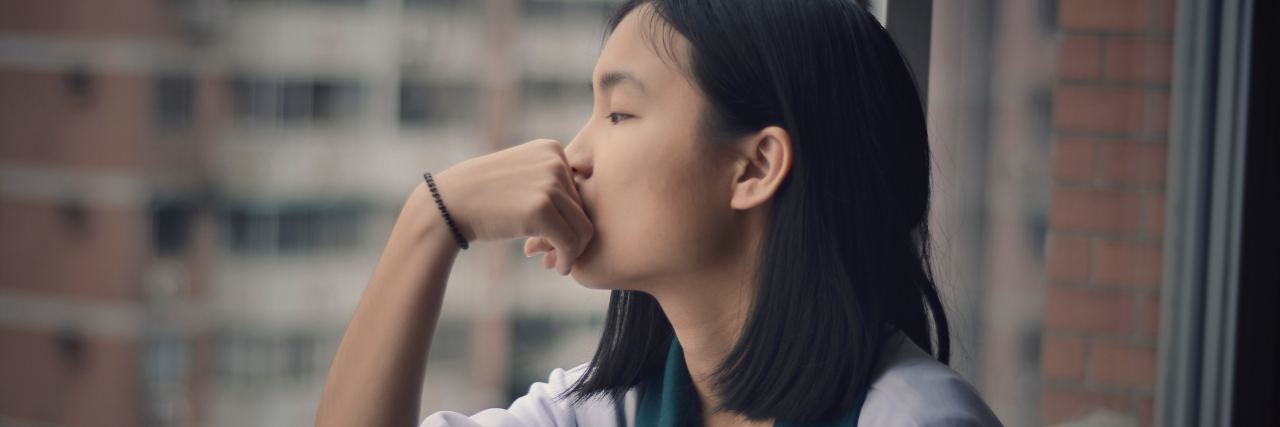When my illness hit, I had nearly finished my junior year at Princeton. An English major with a passion for literature, art, and social equality, I imagined the possibilities in my future: a paralegal position at a New York law firm, an internship at a nonprofit, graduate school. My friends interviewed for consultant positions at top firms and received acceptances from world-class graduate programs. My college’s job board had a slogan, something some marketing manager made up to appeal to the bright-eyed youth joining the workforce: Future so bright, you gotta wear shades. My illness had other plans.
During fall semester, as my health deteriorated, I pushed myself to keep up with my classes and my senior thesis. All my life, I’d told myself that the solution to failure was just to work harder, regardless of the health consequences — so I pulled all-nighters and downed endless cups of coffee. I got sicker. My body, unable to fight off infection, battled a cold that lingered three months, leading to ear infections and strep throat. As much as I tried, I couldn’t hide my illness. That semester I took a seminar with my thesis advisor; in his feedback on my final essay, he wrote that I often seemed quiet, perhaps tired, during class discussion. Reading those words, my vision blurred a little, an anxiety reaction when my world shifts in some way; the struggle I thought I’d hidden had spilled over into my life easily as water, drenching everything.
Now, two years later, I ache to think about who I was then, how I imagined my future, where I thought I’d be. My stillborn life: how can I mourn something that never even happened? My friends live in Brooklyn apartments, attend graduate school in Europe, travel the world on their paycheck. They have “real” jobs, career jobs: banking, engineering, teaching, programming, and — the bane of the Ivy League — consulting. The voice in my head, the one that tells me to just work harder, says that I should be among them. That it’s my fault that I can’t hold a job, that I still live with my parents, that I can’t suppress my symptoms through sheer willpower. “Sick” transforms into something harsher, assigning morality to my illness: lazy, useless, burden.
This is my life with chronic illness, demarcated in stages of grief: first, denial, the frantic notion that life will go back to normal. That I’ll be cured and can pretend like none of it ever happened. Then anger: why this, why me?
That’s as far as I’ve gotten. Perhaps, eventually, I will come to bargaining, though I have no idea what that might look like. Depression slips in too easily. Acceptance, though, remains elusive; sometimes I feel as if I can almost grasp it, that I no longer ache for that fantasy life free of illness. But I haven’t give up hope that, someday, that will be my life. That somehow things will get back on track and I’ll get a job, and go to grad school, and live in an apartment of my own.
In another future, I stop measuring myself against others in the language of shame. In this future, I measure success in moments of joy and peace: reading under a warm sun, holding a hot mug with both hands, sharing a joke with friends. Maybe this doesn’t have to be some distant fantasy — maybe, for now, these moments are enough. Maybe, for now, I am enough.
Lead photo courtesy of Pexels

